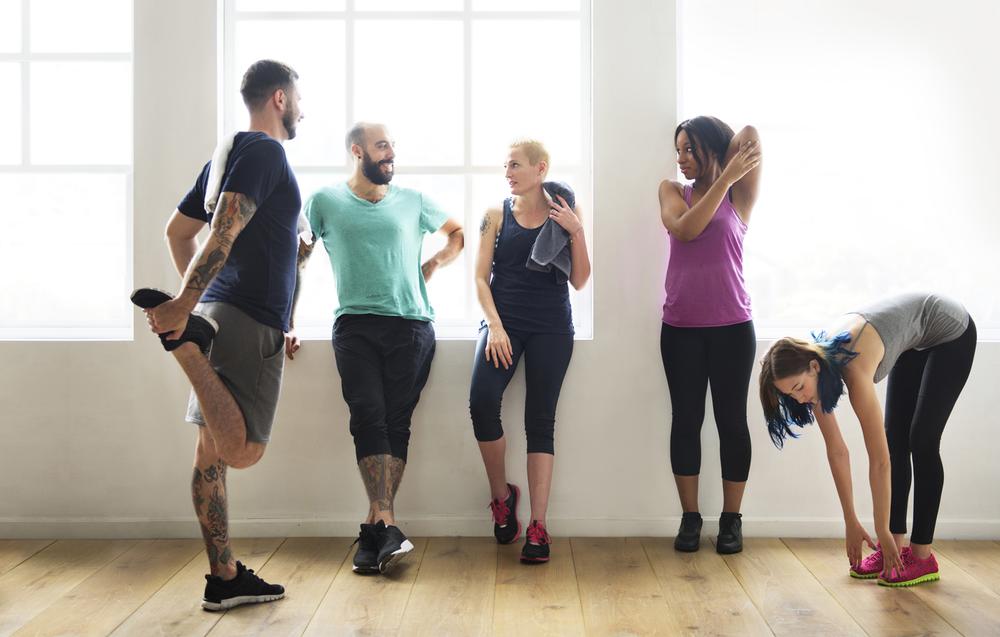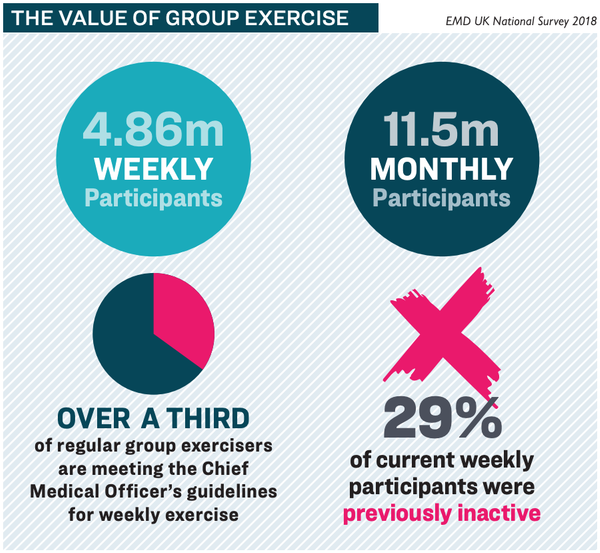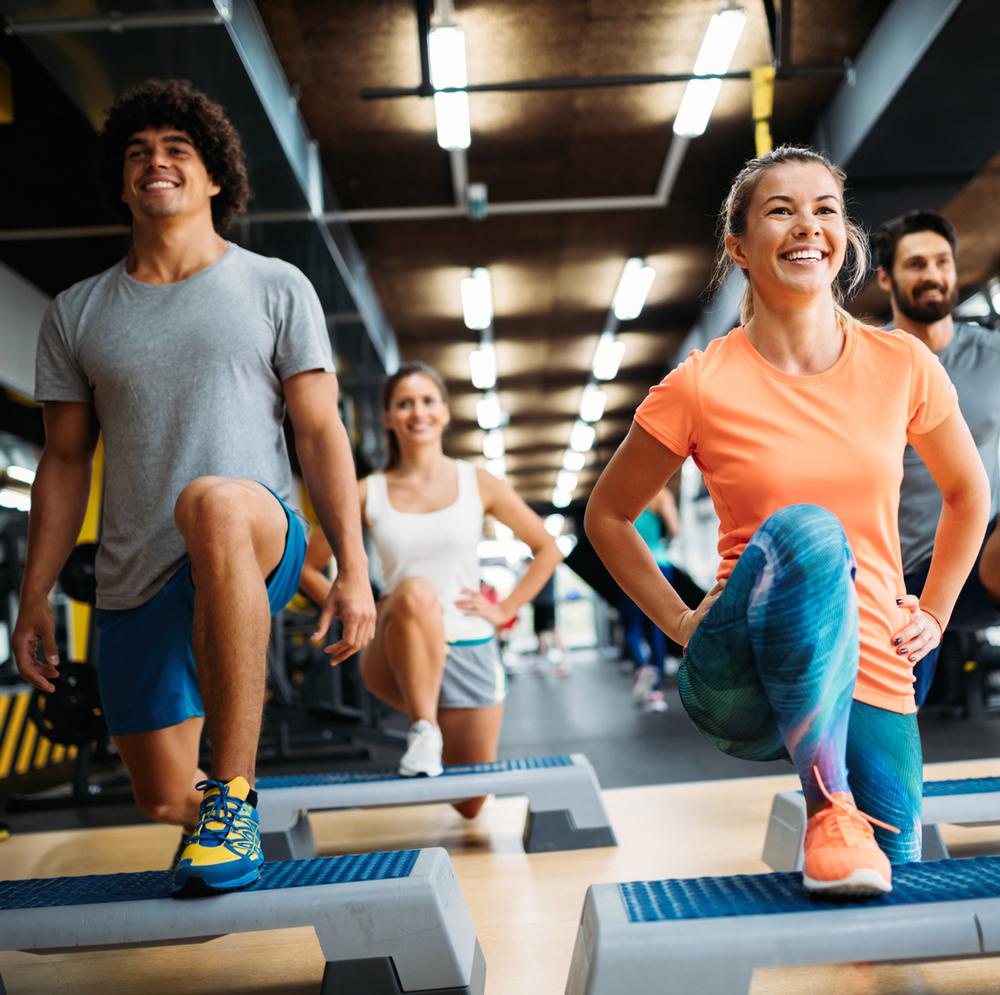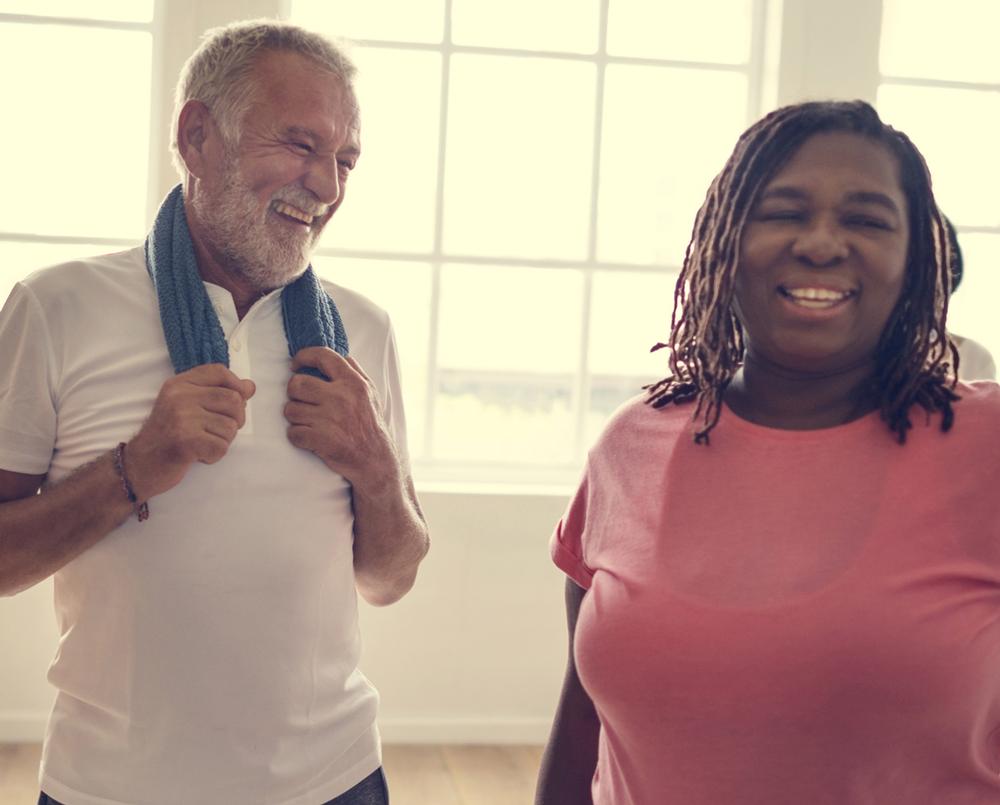As the national governing body for group exercise, EMD UK are committed to growing participation in the activity. Currently 4.86 million people take part every week and this number is growing rapidly with over one million more weekly participants since 2016.
With the upward trend in group exercise set to continue, the need for a qualified, highly skilled workforce is paramount for the safety of participants and sector growth.
In 2019, EMD UK worked in partnership with Active IQ to revamp the Exercise to Music qualification for the 21st century. The qualification, which had remained widely untouched since the 1990s, has been updated to reflect the changing fitness landscape and is now delivered under the name Level 2 Group Training to Music.
The national governing body also works with operators and boutiques, recently Third Space London, to upskill staff and review timetables, ensuring the best possible group exercise experience is being delivered to members and that the workforce is happy.
Sweating Your Assets
In 2019, EMD UK published their white paper at the Elevate conference. Entitled Sweating Your Assets: The Value of Group Exercise, the report highlights the growth of this popular activity and demonstrates how it’s moved inactive people into a regular physical activity habit.
It showcases the contribution that group exercise has made in creating a healthier nation through exercise but also notes that the activity is widely undervalued as a gateway to active lives, not just by the public but also by the fitness industry.
Group Together
Group exercise, or group fitness classes as they are also known, are a familiar sight in gyms, leisure centres, studios, and village and community halls.
With a range of classes to choose from, such as Pilates, dance fitness and boot camps, group exercise provides an accessible activity for those looking to start a regular exercise routine; one reason why it has featured heavily in Sport England’s This Girl Can campaign.
A large problem currently facing the UK is that of inactivity. The Chief Medical Officer’s physical activity guidelines state that adults should participate in 150 minutes of moderate intensity exercise every week. To be classed as inactive, a person is doing 30 minutes or less activity every week.
In 2017, a study by the British Heart Foundation found that more than 20 million people in the UK were found to be physically inactive.
With inactivity thought to be more deadly than smoking, much more needs to be done to get people healthier. Group exercise has been proven as a gateway to physical activity. In fact, 29 per cent of current group exercise participants were inactive before they started to participate in group activity classes and 55 per cent of those had been inactive for three years or longer.
Combat Loneliness
Aside from the physical health benefits, group exercise promotes a wealth of mental and social benefits. There’s been widespread coverage about the UK’s current loneliness epidemic and it’s not just the elderly who are prone to feelings of isolation or being alone.
Figures published in April 2018 from the Office of National Statistics (ONS) revealed that more than five per cent of adults in England felt lonely “often” or “always” between 2016 and 2017 (that’s one in every 20 adults), with 16 per cent enduring feelings of loneliness sometimes, and 24 per cent occasionally.
Group exercise classes are more than just loud music, fast movements, and shouts of encouragement from an instructor at the front of a class. They also offer fantastic social inclusion opportunities, health benefits and psychological support – all imperative to combat loneliness.
The group setting really helps people develop a sense of community, truly feeling they are a part of something by being surrounded by like-minded, encouraging people, many of whom will have similar ambitions and reasons for joining.
Promote Group Exercise
Despite the merits of group exercise and the growing number of people participating, EMD UK argue that more needs to be done to promote the value of group exercise to wider society, and that health club operators have a key role to play.
Group exercise is often an afterthought in leisure centre membership promotions, where the marketing line “free classes included” frequently and instantly undervalues the activity. Many leisure and fitness operators are under pressure to reduce costs and offer cheaper services.
Cuts to local authority budgets, the rise of the budget gym chains and growing competition for leisure spend mean the fitness marketplace is as competitive as it’s ever been.
However, group exercise can strengthen a gym’s membership retention. A 2013 study by The Retention People found that people who attend group exercise classes are 26 per cent less likely to cancel their gym membership. For this reason, and others outlined in Sweating Your Assets, health club operators and leisure providers must do more to promote the value of group exercise to their local communities to create healthier, more active people. With the advent of social prescribing becoming more prevalent to lessen the burden on the NHS, leisure facilities can welcome more new customers. As an alternative solution for medical rehabilitation, these new participants have a genuine interest in attending the exercise classes on a regular basis.
Value Your Instructors
Investment in group exercise and its workforce is key to promoting positive activity changes in society. EMD UK have identified that the group exercise workforce is also endemically undervalued.
Instructors are the second biggest influencer on group exercise attendance and the face of the activity. Despite their work in helping people to get active, many instructors have not had a pay rise in over ten years. Investing in instructor pay, CPD and understanding the value group exercise brings to their business are ways that health club operators can raise the profile of group exercise for the good of the nation.
As an activity, the benefits of group exercise are far reaching. It’s not just the individual participants who profit from better physical health, but wider society; increased mental welfare, lower stress, the opportunity to meet new people, fewer sick days, a reason to leave the house – all culminate in a healthier, more active society which is less dependent on social care.
As the national governing body for group exercise, we are calling on the public, local authorities, health club operators, the workforce and the industry to recognise the value of group exercise.
With one million more people participating since 2016, many more inactive people will convert to a regular physical activity habit. With a whole-system approach, we can achieve a healthier nation through exercise and Sweating Your Assets marks the start of this challenge for EMD UK.


























































